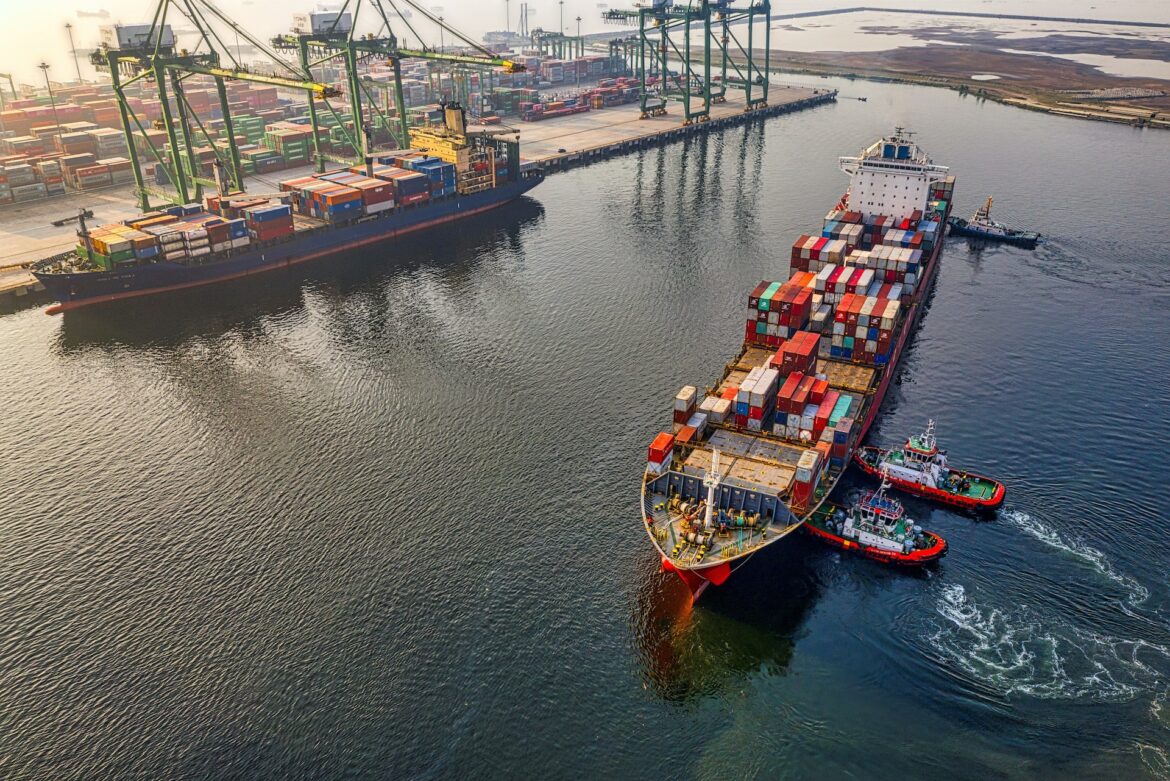Proactive and meaningful steps toward sustainability are becoming increasingly vital in businesses across every industry and the maritime sector is no exception.
A global ecosystem comprising a myriad of businesses of every shape and function, the maritime industry is vast and diverse. Ancient in origin and at the forefront of worldwide innovation, science and technology.
Sustainable business practices and habit changes are something that each individual and every organisation can be part of, however for the maritime industry the pressure to evolve and improve feels especially powerful. This could be due to the presence of the widespread human environmental impact on seas and waterways in the news almost constantly.
Sustainability often has a ‘trickle down’ effect and can be enhanced and supported industry wide from actions at the highest levels, as well as at the level of individual ship management.
The problems of sustainability in the maritime industry are complex and far reaching. The sector’s growing reliance on fossil fuels over the past century is one issue alongside the inherent difficulties of waste and resource management and direct, physical environmental impact.
Can ship management have a role in sustainability? First we need to understand the nature of ship management itself.
What is ship management?
Ship management encapsulates the running and operation of a sea-going vessel, a service often provided by a specialist ship management company. This service can be undertaken on behalf of a private owner as well as for a maritime organisation owning a fleet of vessels.
Ship management companies take on the tasks and responsibilities of a vessel’s management and upkeep. Increasingly, ship management services have become an essential aspect of the maritime industry, providing vital solutions and systems for safer, more efficient sea travel and shipping.
A ship management firm will deal with everything from a vessel’s maintenance and repair to hiring crew, sourcing provisions and arranging any legal requirements particular to the ports the ship will visit.
Every year, the maritime sector transports around 90% of global imports and exports making it one of the world’s most indispensable business sectors.
Ship management companies play a key role in this infrastructure, overseeing all services connected with a vessel and securing the safe, secure and reliable transportation of important cargo.
As ship management services have gained in importance so has the need for environmentally focussed, sustainable business practice across the industry.
Many vessel owners and operators are looking to the management companies, tasked with overseeing their ships, to offer better and more forward-looking and sustainable solutions and systems to meet the growing focus on environmentally sound practices.
Can ship management play a role in sustainability?
Quite simply put, yes it absolutely can and must play a role in sustainability across the maritime industry.
Sustainability issues have snowballed over the past two decades with greater awareness and dissemination of key information surrounding global environmental impact, the use of fossil fuels, global warming and the need for more careful consumption of finite resources.
The vital, complex and multi-layered position that ship management companies hold within this business sector means that they can lead the way in sustainable practices, helping to futureproof the industry and creating a set of beacon policies that other businesses can look to for inspiration.
Over the next ten years the maritime industry will find an increase in the pressure to fully commit to reducing its carbon emissions and its wider environmental impact.
To achieve this goal, stakeholders across the global maritime industry, including ship management companies, will all have a role to play in securing sustainability for the future of the sector.
How can ship management support sustainability?
Fossil Fuels & CO2 Emissions
Undoubtedly the industry-wide reliance on fossil fuels is the major issue in creating a more sustainable and environmentally sound industry.
Currently, the shipping sector produces 2-3% of global CO2 emissions. The International Maritime Organisation (IMO), set targets to halve the sector’s carbon emissions by 2050 (compared with levels in 2008), with the ultimate aim of eliminating carbon emissions altogether.
Decarbonisation is potentially the most complex and pressing challenge faced by the global maritime industry, in light of the worldwide climate emergency.
Many ship management companies have developed strategies to help vessel owners reduce emissions and make more economical use of fossil fuels. They do this by providing guidance on the best way to plan fuel consumption, optimising the purchase and storage of required fuel and working towards better economies of fuel use across the industry. They are also at the forefront of solutions that will integrate renewable energies into the maritime industry long term.
Planning, Efficiency & Issue Mitigation
Much of the current sustainability success across the maritime sector is achieved via expert planning and preparation to reduce unnecessary spend and consumption and mitigate potential issues that could cause a negative environmental impact.
Many ship management companies provide a designated digital dashboard that offers access to data and reports. This means that owners and operators can make informed decisions on every aspect of a vessel’s productivity and efficiency, planning ahead for maintenance and service and helping to avoid any issues and disruptions.
If you are a ship owner looking to create a more efficient and sustainable environment for your vessel or fleet, these types of analytics can be invaluable in helping to manage your business more effectively.
Final thoughts
Ship management has a vital role to play in the top down implementation of sustainable practices in the maritime industry. To reach the targets set out by the IMO by 2050, great strides will need to be made towards sustainability in all areas of the sector.
The wide reaching effects of expert ship management services and the associated software and analytics employed by ship management companies, will continue to improve vessel and fleet efficiency and resource consumption.
This will create a knock-on effect of more sustainable practices across the industry as forward-thinking customers look for more environmentally sound businesses to partner with for their shipping, cargo and transport needs.




